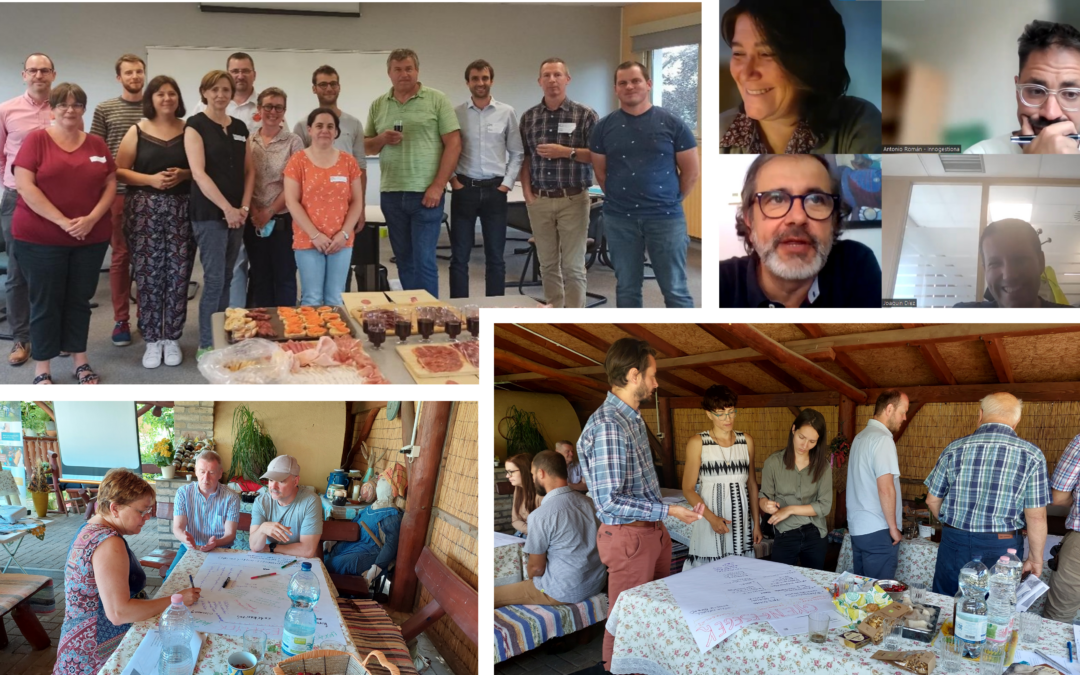From co-creation to intervention for the improvement of sustainability in agri-food chains.
The H2020 CO-FRESH project works to improve sustainability in fruit and vegetable agri-food value chains in Europe, including high-protein products. To this end, CO-FRESH includes 7 pilot cases which have brought together the main actors in the value chains in specific working groups to co-create innovative solutions that improve economic, social and environmental sustainability in each case, according to a specific methodology developed within the project. CO-FRESH is coordinated by the National Centre for Agri-Food Technologies (CNTA) and a consortium of entities from different European countries that includes universities, producers, professional associations, research centres, companies and entities related to the agri-food and technology sector.
After months of work in identifying reference business models, reviewing the state of the art, socio-economic and environmental analyses and consumer surveys for each of the 7 pilot cases, the working groups have held co-creation sessions to analyse the current situation of value chain for each of the 7 pilot cases, in line with the CO-FRESH project approaches – sustainability-oriented innovation – to propose a list of sustainable innovations including product (fruit, vegetables and high protein products), processes and management; with a comprehensive perspective: from producers to consumers, through processing, transformation, packaging, storage, distribution and sale.
Innogestiona Ambiental, as the entity in charge of the impact assessment and monitoring of the CO-FRESH project activities, has conducted personal interviews with the leaders of each of the pilot cases and has collected the evaluation by the participants in the co-creation sessions.
Co-creation experiences: leaders interviews and stakeholders feedback
Although the pilot cases are diverse in terms of size and composition of the value chain, and face different challenges, they all rated the working sessions positively.
First of all, the conceptual framework of the CO-FRESH project, developed by Wageningen University, with sustainability-oriented innovation at its core, has served to introduce the working sessions, contextualise the project objectives and thus the reference horizon for the expected results in each of the sessions. Assessment of this information and its relevance has been uneven, while in some cases it has been considered insufficient in terms of the time devoted and the depth of the presentation, in other cases it has been assessed very positively.
Similarly, the methodology for co-creation, developed by CREDA within the framework of the project, has made it possible to systematise the work and homogenise the results for subsequent analyses. This methodology has made it possible to carry out a collaborative SWOT analysis of each pilot case, as well as to co-create a list of innovations aimed at sustainability (in relation to the product, processes and management) in order to finally select the innovation or innovations that will be introduced in the value chain and that mark a milestone in the project, in order to move from the co-creation phase to the intervention phase.
From the interviews with the leaders of each working group, the relevance of this methodology stands out. Although it is designed with guidelines and a concrete guidelines in terms of dynamics and results, it is flexible and favours adaptation to the needs of each working group, even with remote experiences, which were initially discouraged.
On the other hand, the socio-economic and environmental analysis data, as well as the consumer surveys carried out by ACTALIA and CREDA, project partners, have enabled the members of each working group to identify weaknesses, threats, strengths and opportunities, as references for proposing solutions to improve the sustainability of each value chain.
According to the evaluation of the participants in the co-creation sessions, this joint analysis has opened the doors to future synergies that go beyond the CO-FRESH project, and have set a precedent of collaboration dynamics between actors that traditionally acted as competitors.
By identifying common challenges and opportunities, the list of proposed innovations is presented as business opportunities aimed at improving the competitiveness of the value chain, as well as social benefits and environmental sustainability, aspects that transcend the pilot case itself and that show the importance of co-creation when implementing sustainable initiatives in the agri-food sector.
All the co-creation workshops have been held successfully in terms of participation and representation of the actors involved in each of the 7 value chains under study. The selected innovations will be implemented in the next phase of the project, with subsequent monitoring and evaluation actions, in order to validate co-creation as a useful methodology to improve the socio-economic and environmental sustainability of agri-food value chains in Europe.

Recent Comments